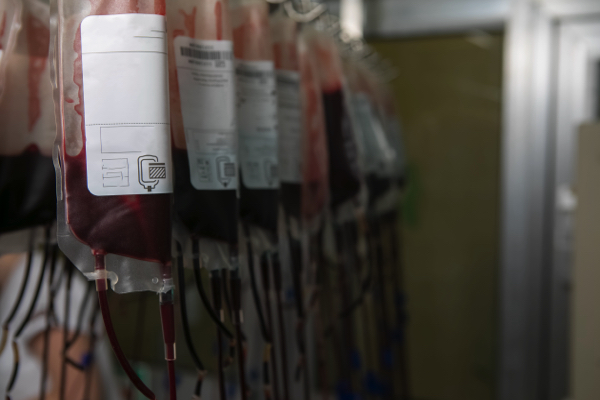Ransomware attack on blood bank forces hundreds of hospitals in southeastern U.S. to activate blood shortage protocols
08/06/2024 / By Olivia Cook

OneBlood, a prominent non-profit blood donation center in Florida that serves hundreds of hospitals in the southeastern United States, has been targeted by a ransomware attack. Despite the attack, the organization continues to collect, test and distribute blood but at a “significantly reduced capacity.”
To address the disruptions, the blood bank adopted “manual processes and procedures to remain operational. However, these manual methods “take significantly longer to perform and impact inventory availability,” as explained by Susan Forbes, OneBlood’s senior vice president of Corporate Communications and Public Relations.
In an effort to manage the blood supply, the more than 250 hospitals served by OneBlood were forced to activate their critical blood shortage protocols.
OneBlood is figuring out the full extent of the cyber attack and what effect it has had on the organization’s data centers. As of press time, it is still not certain if customers’ personal information – such as test results, medical histories and blood types – have been compromised. (Related: HACKING THE HACKERS: FBI, law enforcement agencies from 11 other countries shut down ransomware websites of notorious cybercriminal group.)
The attack on OneBlood is just the latest in a series of data breaches affecting the health care sector. Recently, a data breach of Kaiser Permanente is estimated to have affected roughly 13.4 million individuals, and a June report by data security firm SecurityScorecard warned that 34 percent of third-party data breaches in the U.S. in 2023 targeted health care organizations, far “outpacing every other sector.”
Ransomware attack could affect health of thousands of patients in the United States
OneBlood provides safe, available and affordable whole blood, platelets and other blood products to hundreds of hospitals across Alabama, Florida, North Carolina, South Carolina and Virginia. The loss of OneBlood’s services could affect the health of thousands of patients across the Southeastern United States.
“The blood supply cannot be taken for granted,” said Forbes. “The situation we are dealing with is ongoing. If you are eligible to donate, we urge you to please make an appointment to donate as soon as possible.”
The situation has become increasingly precarious for OneBlood amid the onset of Hurricane Debby, at a time when OneBlood needs to expedite its processes.
“Manual processes take longer to perform,” said Forbes. “We felt the impact of this the most when it came to labeling blood for release to hospitals.”
“Blood drives are taking place, our donor centers have remained open, and we continue to see a tremendous response from OneBlood donors answering the call for blood donations,” said Forbes.
The organization added that there is an urgent need for O positive, O negative and platelet donations. OneBlood has received significant aid from other blood centers across the country led by the Association for the Advancement of Blood and Biotherapies Task Force, which was formed to protect blood collection efforts in the event of natural disasters or acts of terrorism.
To aid in blood collection efforts, OneBlood’s 81 blood donation centers in 30 Florida counties are open to accept walk-ins, and the organization’s more than 250 “Big Red Buses” have been deployed across the state. These buses can often be seen at grocery store and shopping center parking lots, offering coupons, T-shirts and other merchandise to people willing to donate blood and platelets.
Visit Glitch.news for more similar stories.
Watch this video about OneBlood getting hit by ransomware attack, impacting its software systems.
This video is from the Daily Videos channel on Brighteon.com.
More related stories:
Ransomware attack on DOLE causes SHORTAGE of salad in groceries.
Was the FAA’s nationwide ground stop on flights last week the work of ransomware hackers?
Global cybercrime kingpin BUSTED in crackdown involving multiple law enforcement agencies.
Sources include:
Submit a correction >>
Tagged Under:
blood banks, blood donations, blood shortage protocols, blood supply, chaos, computing, cyber attack, cybercrime, cyberwar, Glitch, hacking, health care, information technology, national security, OneBlood, ransomware, ransomware attack
This article may contain statements that reflect the opinion of the author




















